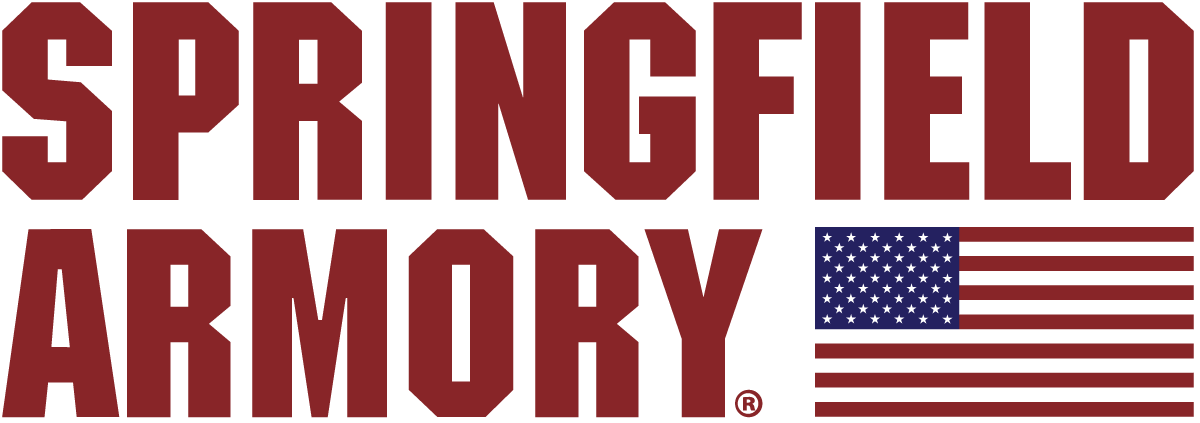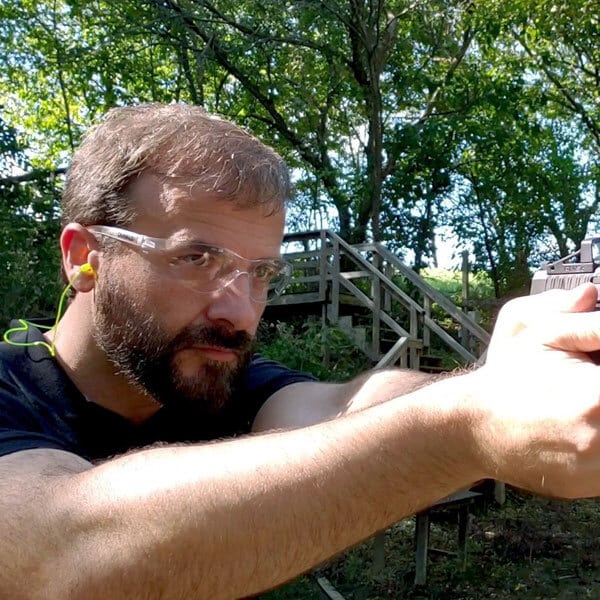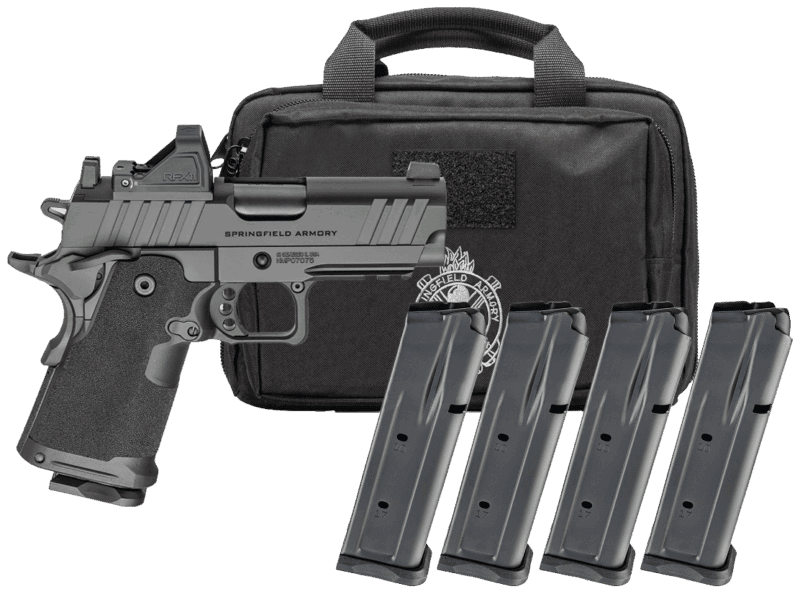The Armory Life is honored to recently have had the opportunity to conduct an interview with Rob Leatham, renowned professional shooter, firearms instructor and Captain of Team Springfield since its inception.
Competing since 1978, Leatham has amassed an astounding record of success over the past four decades — eight-time IPSC World Champion, 11-time NRA Bianchi Cup Action Pistol Champion, 34-time USPSA/IPSC National Champion (overall & aggregate), eight-time Steel Challenge World Speed Shooting Champion, seven-time IDPA champion, and more.
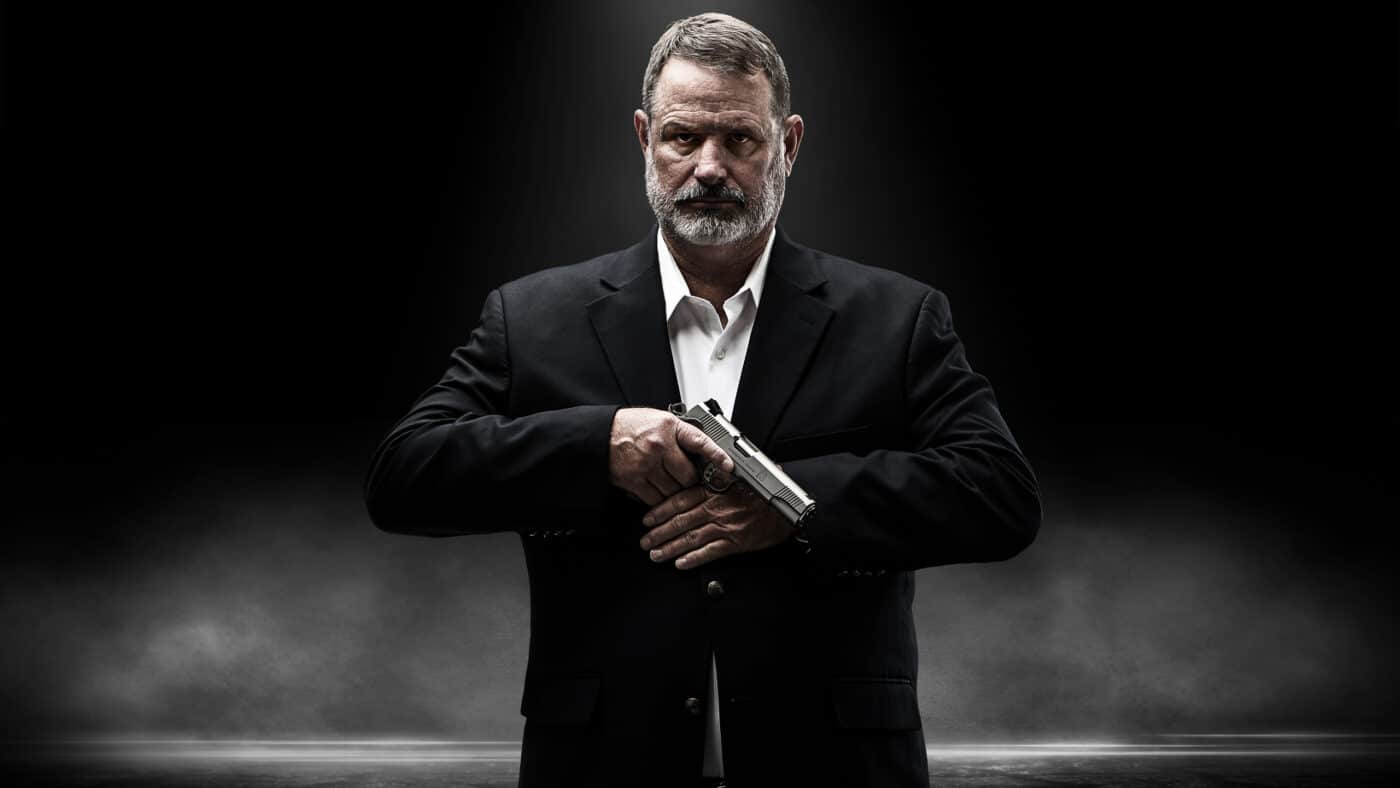
It is this background that has earned him the moniker of “The Great One”, or simply TGO. In fact, Springfield Custom offers the “TGO I” handgun named in his honor and designed by the man himself. Having known Leatham for many years, I can honestly say he does not promote the TGO title himself, but rather graciously accepts the fact this is how he is viewed by those familiar with his skills and accomplishments.
Rob Leatham, By the Numbers
- 34X USPSA / IPSC NATIONAL CHAMPION (Overall and Aggregate)
- 11X NRA BIANCHI CUP ACTION PISTOL CHAMPION
- 8X IPSC WORLD CHAMPION
- 4X USPSA CLASSIC NATIONALS AGGREGATE CHAMPION
- 14X USPSA / IPSC NATIONAL “SENIOR” CHAMPION
- 10X IPSC WORLD “TEAM” CHAMPIONS #TeamUSA
- 19X SINGLE STACK CLASSIC CHAMPION
- 3X AMERICAN HANDGUNNER WORLD SHOOTOFF CHAMPION
- 8X STEEL CHALLENGE WORLD SPEED SHOOTING CHAMPION
- 7X IDPA NATIONAL CHAMPION
- 2019 IDPA WORLD SENIOR CHAMPION
- 2006 ICORE INTERNATIONAL REVOLVER WORLD CHAMPION — LIMITED DIVISION
We would like to thank Mr. Leatham for taking the time to do this Q&A session with The Armory Life.
The Armory Life (TAL): Please tell us a bit about yourself, for those who might not know you.
Rob Leatham (RL): Well, where to start? I was born in Mesa, Arizona, in 1961, and I still live here. I started working for the Arizona Republic/Phoenix Gazette newspapers as a delivery boy to the area offices, right out of high school. I was as happy as I could be! I was poor but I had a job and a pick-up truck, and I reloaded ammo and lived in an old, small apartment. I spent every waking moment working, reloading or shooting — or talking with friends about shooting. It was like heaven for me.
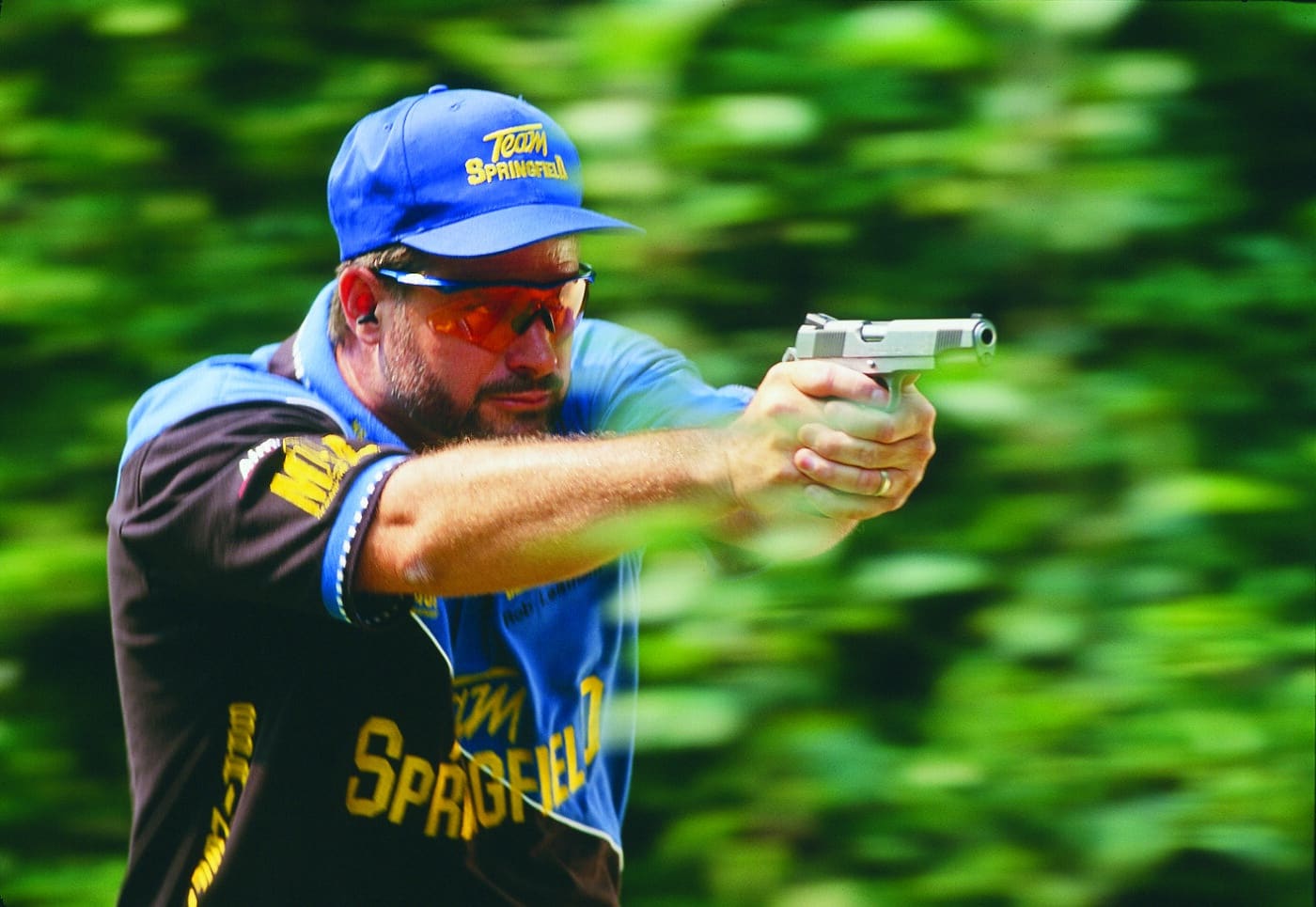
TAL: You clearly love guns, but were you raised around them? Was it a family tradition, or something you picked up on your own?
RL: From a very early age, all I wanted to do was play basketball, run track and shoot guns. I grew up in an outdoorsy family, and my parents were pistol shooters. So, it just came naturally. Our family took lots of hikes and day trips, and these were really just excuses to go shooting. Every shooting/plinking session inevitably turned into a shooting competition.
In high school, I learned to love competitive sports and thrived in that environment. I love competing. It was in that world that I learned to perform under pressure, and it carried over into shooting for me.
TAL: How did you get into competitive shooting?
RL: Pretty informally. It was on those family outings. We did the “walk back” game a lot, but when I read about combat-style shooting and those types of competitions, we started doing things like our version of the “el Presidenté” drill (invented and made famous by the late Jeff Cooper of Gunsite fame). We had three 12” still plates with rebar welded onto them that we jammed into the ground. So, when we went out into the desert, “bam!”, we had an instant shooting range.
This was when I was about 14 or 15 years old. My dad had holsters for every handgun he owned, and I learned using an old .38 Special revolver and loading out of my pocket (or from belt loops). That was, until I picked up a speed loader. That changed everything! Now, I could reload the gun much more quickly. I remember my dad bragging to people that I could do the el Presidenté in 13 seconds. That is still funny to me to this day.
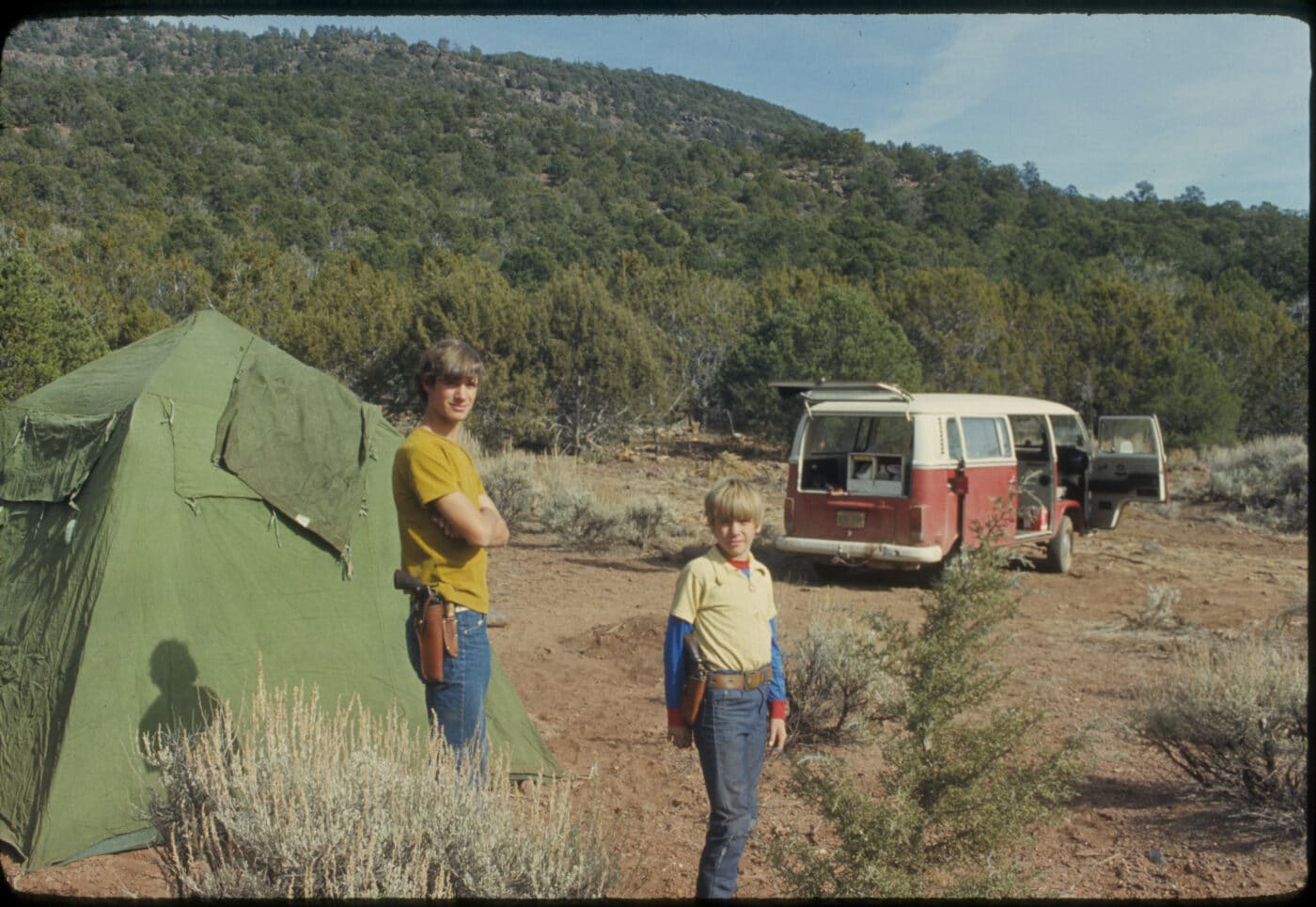
My first formal competition was in December of 1978, which was my senior year in high school. It was at the Mesa Police Department range on a Saturday night. The only reason I could go was because it was on a Saturday. The local matches were usually on Sundays, so my mom wouldn’t let me skip church to attend.
That match changed my whole life. From then on all I wanted to do was shoot and compete. After basketball season ended, I didn’t run track my senior year. Mom’s still sore about that. But I couldn’t help it. All I wanted to do was shoot. When I graduated, I got a job and moved out and went shooting every chance I had. I have pretty much been on that trajectory ever since.
TAL: How did you first get connected with Springfield Armory?
RL: I shot the IPSC Nationals in Milan, Illinois, not far from Springfield’s home in Geneseo. I won an M1A Super Match rifle as a prize at a shooting competition in 1983. It was beautiful and I had always wanted one. But being poor, I could not afford one. I was preparing to shoot it in one of the old Soldier of Fortune 3-Gun matches and I damaged it the week before the match with some questionable reloads I “borrowed” from one of my shooting partners. I needed to get it repaired for the match, so I called Springfield up and spoke to someone named Dennis. You know, that guy Dennis Reese who just happens to be CEO and owner of Springfield Armory.
He was terrific about the issue and told me he would send me out another rifle, no questions asked. He did ask me to send my original one back to him for inspection. I shot the new rifle in the match and could not have been happier with its performance. That was my first experience with Springfield Armory, and it was a good one.
It was in 1985 that I again crossed paths with Springfield Armory. Dennis’ brother, Dave Reese, had a booth out at the Bianchi Cup that year. At that time, I was having Bill Wilson of Wilson Combat build IPSC competition guns. In those days, it seemed like everyone was shooting Colt 1911 pistols, so I was curious if the Springfield Armory 1911 pistols were as good as the rifles I had.
I asked Dave if I could get a few to have Wilson build up for me. Long story short, Dave said yes, Bill built the guns (9mm models modified to accept the .38 Super round) and I went on to win several titles with them. I was really impressed with the pistols and the company.
TAL: When did you officially start working for Springfield Armory?
RL: I kept using Springfield Armory 1911 pistols in my competitive shooting for the next few years and I won a lot of titles with them. It was in 1989 that another Reese brother, Tom Reese, approached me and said, “We want to have you work for us as an employee, shoot our guns exclusively, and help us get a custom shop for the company going.” Well, it took me about two seconds to accept that offer. I have been part of the Springfield Armory family ever since.
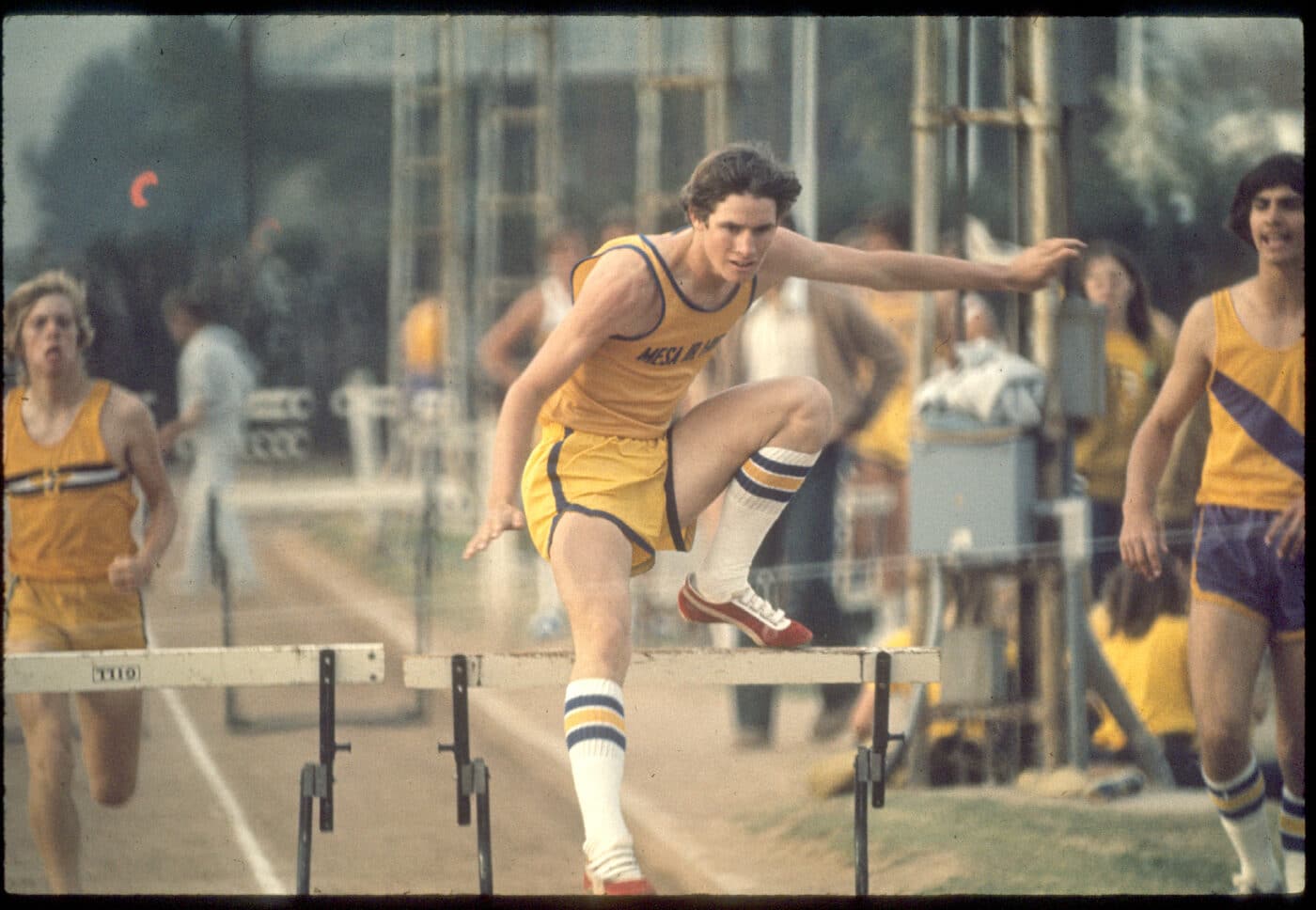
TAL: What are some of your proudest wins in the competitive shooting world, and what guns did you use?
RL: I’m proud of all of them, but maybe my most significant win (as I have gone on to win 19 of them) was the 1995 Single Stack Classic, which has turned into the USPSA Single Stack Nationals. This is an event solely for the 1911 pistol with limited modifications.
That pistol is one of the most tricked out 1911 pistols ever built. It’s a Springfield Custom Shop 1911 in .40. Everyone else was using .45’s. It was built to the absolute limits of the rules, with a heavy tungsten guide rod, long extended and squared triggerguard, and all the tricks, like checkering and a beavertail safety. All things you can now buy off the shelf. With the nine-round magazines, I had a capacity advantage over nearly every other competitor I faced with it. I won four consecutive years with that gun before I retired it in 1988. That gun would still be state of the art in that division today.
In fact, though, my proudest win isn’t technically a win. It was placing 100th and finally making the President’s Hundred at the CMP National Matches held at Camp Perry in bullseye. The pistol I used is a 1911 .45 ball gun built by Springfield Armory’s Custom Shop. Nice and tight and supremely accurate, I should have been able to do it previously, but it took me a few years.
It wasn’t the gun holding me back. It probably doesn’t seem like finishing 100th should be my proudest moment, but that was one of if not the most difficult achievements in my shooting career. Speed has always been my forte, but that really doesn’t help on bullseye. The necessary precision required for bullseye shooting has always been a challenge for me. So, I guess that’s why it means so much to me.
TAL: What are your favorite Springfield Armory firearms?
RL: While I love pretty much everything Springfield makes, my favorite has to be the 1911 series. I have had my most success in the competition world shooting full-size 1911 pistols. That will always be my go-to gun when I need my best performance.
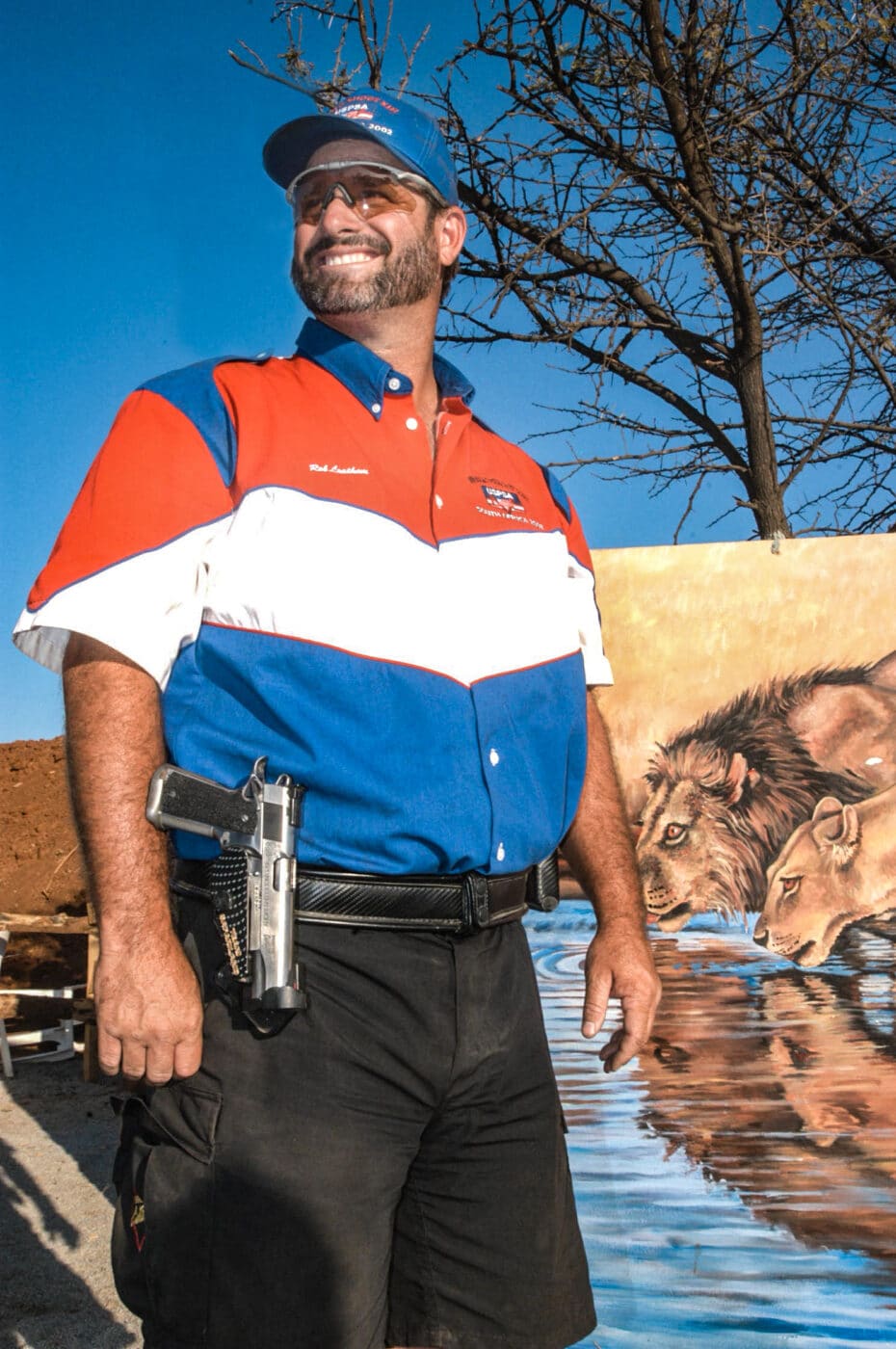
Without making it sound like an infomercial, Springfield Armory has the process of building great 1911 pistols down pat. That the off-the-shelf guns are so well-built is a great source of pride for me as part of the Springfield Armory family. What would have been custom-grade and extremely expensive in the past is readily available and reasonably priced. But then, that has always been my goal on any product/project I have worked on with the company.
TAL: What do you appreciate most about the Springfield Armory of your early days with the company, through to today?
RL: It has to be how well they have treated me. How they treat everyone! And that really starts at the top. No matter the size of Springfield, from the early days through to today, Dennis Reese (we all call him Denny) treats the company’s employees like family. While the company has grown dramatically and we now have many more employees than when I first started, in many ways it really isn’t as different as you might think. What started as a family company still feels that way to me.
For me personally, Denny has always felt like a brother rather than my boss (which, of course, he is). I love the guy like my own family. I think it comes down to respect. If you treat people well, they will respond likewise. I think that might serve well as Denny’s motto.
TAL: Beyond your work with Springfield Armory and your competitive shooting, do you do any training? If so, what type and for whom? Why do you do it?
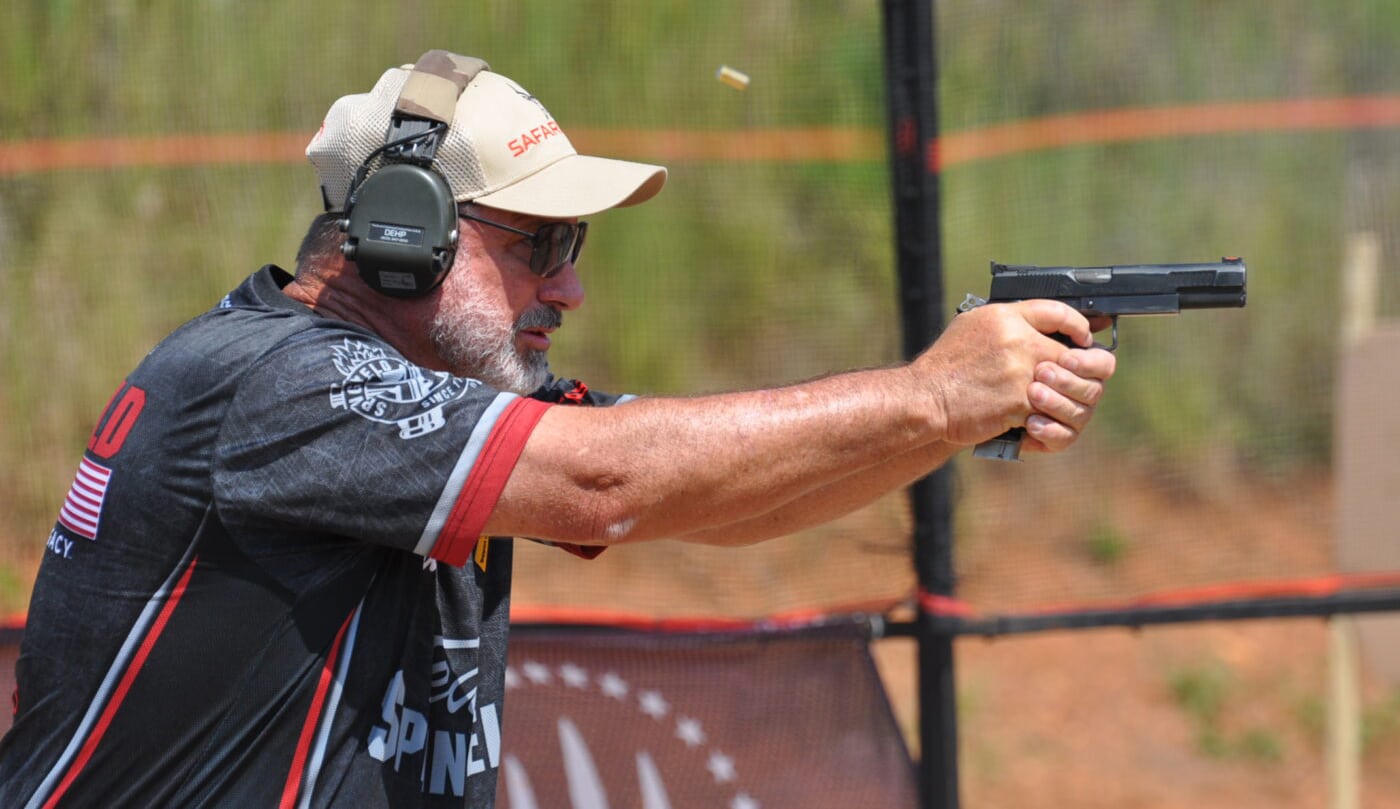
RL: Obviously, it was competitive shooting that brought me into the Springfield Armory family. Win a match here and there, and people notice. That was my start. Individuals and groups then started asking how I was doing what I was doing, so I started teaching.
While this was very modest in the beginning, it grew quickly to the point that I was going all over the country (and overseas) to train shooters of all types and levels. These included members of the law enforcement, military and civilian communities.
At this point in my life/career, while I still love shooting and have had great success in the competition world, I now enjoy teaching more than the matches. I guess it’s a different type of satisfaction. Seeing a student understand something and “get it” thrills me more than winning a match.
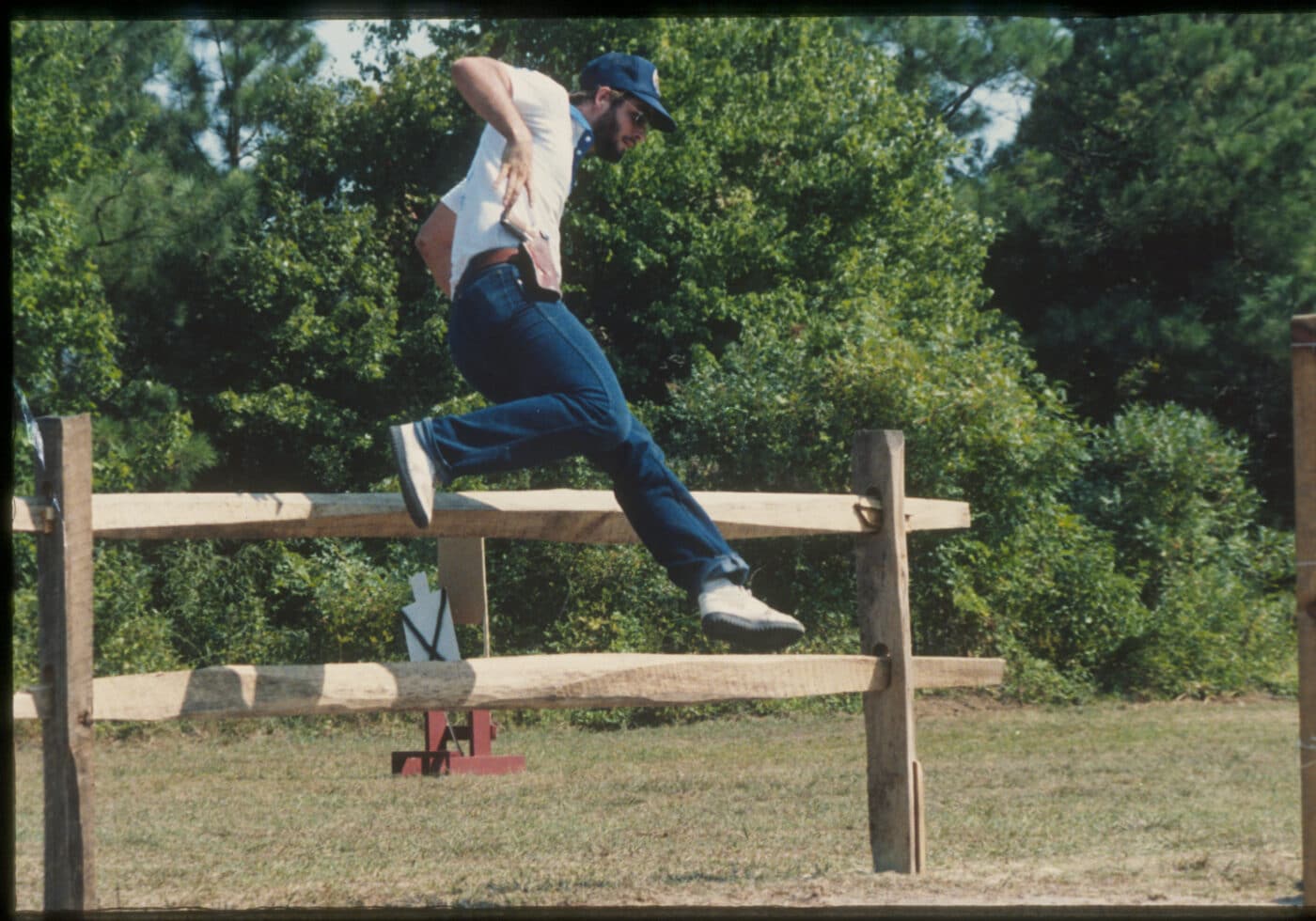
TAL: Clearly, you know your way around a pistol. Are there any disciplines you have taken up that have gotten you “out of your comfort zone”?
RL: Yes, definitely. I could never be happy or satisfied just doing what I am good at. It is that quest for knowledge and skill that has always driven me. I guess the three that most interest me (and two of them are for sure out of my wheelhouse) are sporting clays shotgun shooting, precision rifle shooting and bullseye pistol competition. I am intrigued not only by the techniques and skills required to be good, but also the guns.
Scoring a hit on a target at 800 yards with my rifle resting on a 10-lb. sandbag perched on top of a stack of railroad ties is not only challenging but fun to do. When you hear that “thwack” sound come back a couple seconds later from a 6mm VLD bullet smacking a steel plate, it is so satisfying. Same for me in bullseye pistol. When I finally get the gun to hold steady and I squeeze off a round at the 50-yard line and then look through the spotting scope at a shot in the black, I get excited! Especially if it’s a 10 or an X. Those challenges are hard for me, as I am geared toward fast-shooting, not slow and precise. But I like the difficulty of it. Shotguns were in comparison, easier for me. Fast moving targets and quick trigger pulling are right in my wheelhouse.
TAL: If someone wants to be tomorrow’s Rob Leatham, what advice would you give them?
RL: Easy! You have to love guns and have an incredible desire to become better. More than winning, you must want to become better. I never had to force myself to try to be better. It’s just what I wanted to do. The drive was always there. I learned early on that no matter how much you know, there is always more to learn.
If more people would strive to be a great shooter than try to be seen as a great shooter, they’d be better off. And they’d be happier. But it’s hard. It won’t happen if your goal is simply fame. It can only come from wanting to be the best you can be. I look at the trophies I have around my house, and they don’t mean nearly as much to me as having faced the challenges to get them. You don’t have to beat everyone, but you have to know you did all you could do. Then, go out tomorrow and be even better.
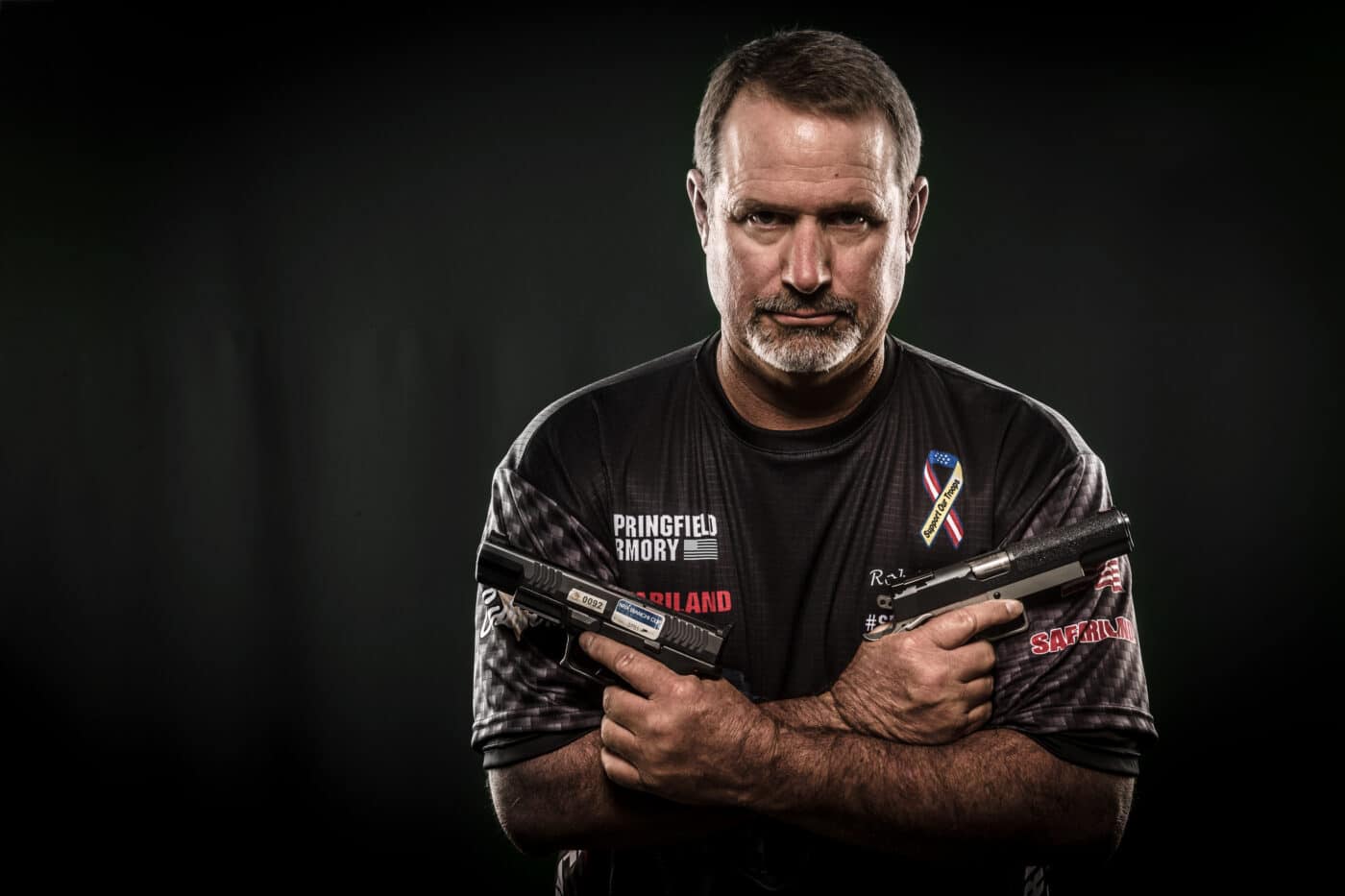
TAL: If you could build a time machine, would you tell yourself to do anything different when you first started out?
RL: Oh, hell yes! I would change lots of things! I wouldn’t have jumped over the fence in the 1983 IPSC World Match. I wouldn’t have ever gotten rid of my 1985 Rabbit GTI or any of the motorcycles I have owned. I’d have tried not to offend some of the people I did, and definitely offended some others.
But as for my shooting career, not really. It has been a dream ride. I have traveled the world and met thousands of awesome people. I have shot hundreds of thousands of rounds of ammo through some amazing guns! I would love to go back and do it all over again, and I bet I wouldn’t do a single thing differently. It has been an awesome life!
TAL: Thank you so very much for taking the time to talk with us and giving us this fascinating inside look at the story behind The Great One. It has been a pleasure.
RL: It was my pleasure as well.
Keep up with The Armory Life for more great interviews. To learn more about Rob Leatham, be sure to visit his website listed below.
Editor’s Note: Please be sure to check out The Armory Life Forum, where you can comment about our daily articles, as well as just talk guns and gear. Click the “Go To Forum Thread” link below to jump in and discuss this article and much more!
Join the Discussion
Featured in this video
Continue Reading
Did you enjoy this video?

 222
222





